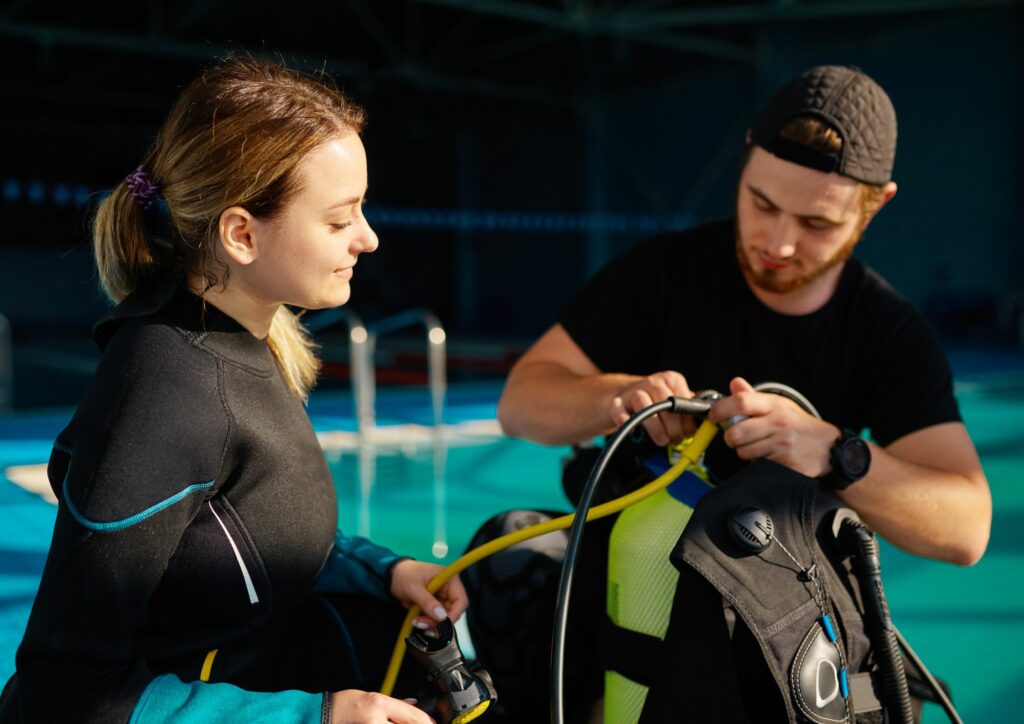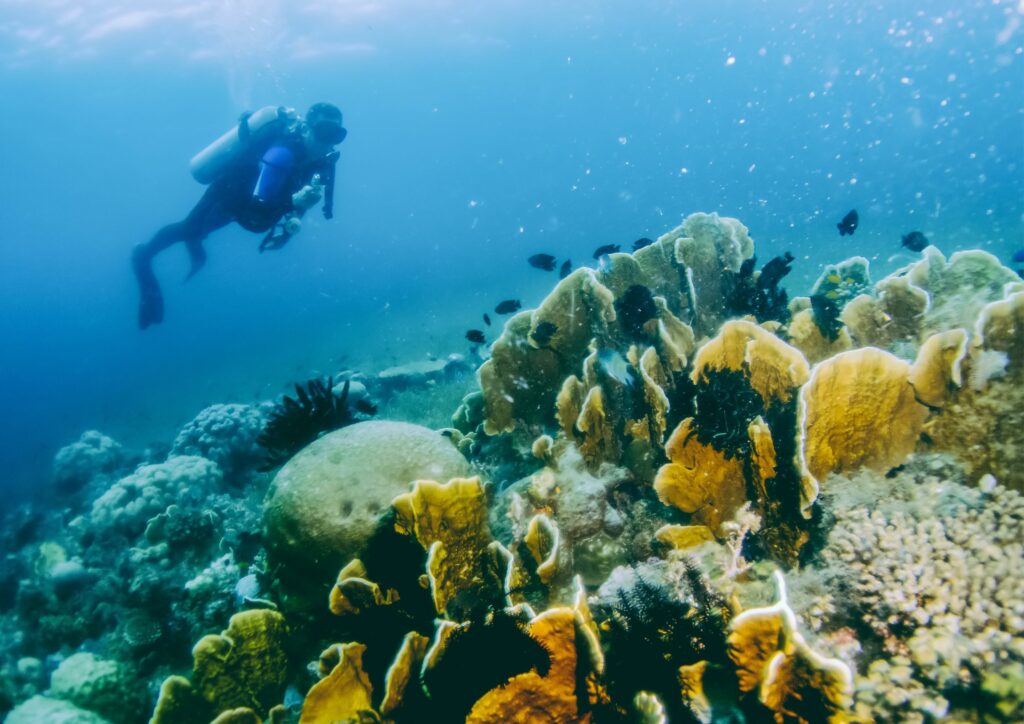Diving in the breathtaking waters of Bali is an exhilarating experience, but mastering buoyancy is essential for both safety and enjoyment. Many divers struggle with controlling their buoyancy, which can lead to stress and an unruly underwater experience. Fortunately, you can enhance your diving skills with a few essential techniques, allowing you to glide seamlessly through Bali’s vibrant marine life. In this blog, we will explore five valuable tips that can help you keep calm, breathe slower, and ensure proper BCD and weight checks, so you can fully immerse yourself in the underwater beauty without worrying about your buoyancy.
Keep Calm: The Key to Buoyancy Control
When diving in Bali, maintaining a calm demeanor is essential for mastering buoyancy. An anxious diver is more prone to rapid movements and shallow breathing, which can disrupt your underwater stability. By focusing on relaxation techniques, such as visualizing serene environments or practicing deep breathing before your dive, you can significantly improve. Keep your awareness on your body and your surroundings, which will enable you to make smoother movements through the water. Remember, a relaxed mind leads to a relaxed body, allowing for better buoyancy management while enjoying the vibrant marine life of Bali.
Breathe Slower: How Your Breathing Affects Buoyancy
One of the most crucial aspects of mastering buoyancy in diving is how you control your breathing. By breathing slower and taking deep breaths, you can significantly influence your buoyancy. When you inhale, your lungs fill with air and making you rise; conversely, exhaling allows you to sink. Learning to time your breaths with your body’s movements underwater not only enhances your stability but also conserves energy. Avoid the temptation to hold your breath, as this can lead to rapid ascents, which can be dangerous. Instead, focus on creating a rhythmic breathing pattern, enabling you to remain calm and maintain a balanced position in the water.
The Importance of Not Holding Your Breath
One of the most critical aspects of diving is the importance of not holding your breath. When you hold your breath while ascending, the air trapped in your lungs expands due to decreased pressure, which can lead to serious injuries, including lung overexpansion injuries. Instead, it is essential to keep calm and focus on slow, steady breathing. This not only helps you maintain buoyancy but also promotes relaxation underwater. It’s essential to perform a BCD check before each dive to ensure your buoyancy control device is functioning correctly.
BCD Check: Ensuring Proper Buoyancy Device Functionality
Before you dive in the stunning waters of Bali, it’s crucial to conduct a thorough BCD (Buoyancy Control Device) check. A well-functioning BCD allows you to achieve optimal buoyancy, which is essential for a safe and enjoyable dive. Make sure the BCD is properly inflated, and check all valves and straps for functionality. Additionally, ensure that your tank is securely fastened into the BCD. Remember, any leaks or malfunctions can drastically affect your buoyancy control. Taking a moment to ensure your equipment is in perfect condition can prevent frustrating adjustments underwater and gives you the peace of mind to fully enjoy your dive experience.

Weight Check: Finding the Right Balance for Your Dive
A proper weight check is crucial for mastering your diving in Bali. Ensuring that you carry the right amount of weight allows you to maintain a neutral buoyancy, enhancing your overall diving experience. Start by assessing your body weight along with your BCD. Generally, new divers should aim for a 10% weight ratio based on their body weight. However, conditions such as water salinity and exposure suits can influence this number. Make it a habit to conduct a weight check before each dive by performing a buoyancy test in shallow water. Remember, too much weight can lead to difficulty in ascents, while too little can cause uncontrolled rises.
Achieving Perfect Buoyancy: The Key to a Memorable Dive
Mastering buoyancy while Bali Diving not only enhances your underwater experience but also ensures your safety and comfort. By keeping calm, breathing slower, and not holding your breath, you can effectively control your ascent and descent. Remember, proper BCD and weight checks are essential in finding that perfect balance in the water. These fundamental techniques are not just for beginners; even experienced divers can benefit from revisiting these practices to refine their skills.
As you prepare for your next dive in the stunning waters of Bali, take these tips to heart. With practice, patience, and a focus on these critical aspects, you can explore the vibrant marine life and breathtaking underwater landscapes with confidence. Dive safely and enjoy every moment, knowing that each plunge deeper into the crystal-clear waters will bring you closer to Bali diving adventure.

I completely agree with the blog post! Mastering buoyancy is indeed crucial for a safe and enjoyable dive. I like how they emphasized the importance of keeping calm, breathing slowly, and not holding one’s breath. It’s so true that a relaxed mind leads to a relaxed body, allowing for better buoyancy management.
Thank you for sharing your thoughts, Jia Li Wong! We’re glad to hear that our blog post resonated with you. Mastering buoyancy is indeed a crucial aspect of diving, and we appreciate your emphasis on the importance of relaxation and controlled breathing. At Gill Divers, we strive to provide our customers with not only an exhilarating experience but also a safe and enjoyable one. We’re committed to helping divers develop the skills and techniques necessary for successful dives, and your feedback is invaluable in achieving this goal. If you have any further questions or concerns, please don’t hesitate to reach out to us at Tel: +65 6734 9373 or Email: [email protected]. Looking forward to hearing from you again!
I’m glad this blog post highlighted the significance of weight checks. It’s easy to overlook the importance of getting the right amount of weight, but it can make a huge difference in one’s diving experience. I’ve had my share of struggles with buoyancy in the past, and I wish I had known these tips earlier.
I’m glad to hear that our blog post resonated with you, Ling Ling Tan! You’re absolutely right, proper weight checks can make a significant difference in one’s diving experience. At Gill Divers, we emphasize the importance of mastering buoyancy techniques, including weight checks, as they’re essential for both safety and enjoyment. We appreciate your shared experiences and hope that our tips will help you navigate any future buoyancy challenges. If you have any further questions or concerns, please don’t hesitate to reach out to us at Tel: +65 6734 9373 or Email: [[email protected]](mailto:[email protected]).
I must say that this blog post has given me a new perspective on buoyancy control. I never thought about the importance of not holding one’s breath while ascending. It makes sense, though – I’ve heard horror stories about lung overexpansion injuries. Thanks for sharing these valuable tips!
Thank you for sharing your thoughts, Yuan Yuan Lee! We’re thrilled to hear that our blog post has provided a new perspective on buoyancy control. Yes, not holding one’s breath while ascending is crucial for safety and comfort during dives. At Gill Divers, we emphasize the importance of proper breathing techniques and regular BCD checks to ensure a smooth dive experience. If you have any further questions or concerns, please don’t hesitate to reach out to us at Tel: +65 6734 9373 or Email: [email protected]. We’re here to help!